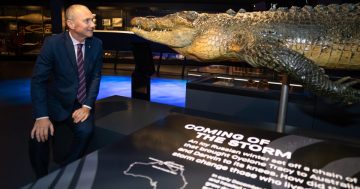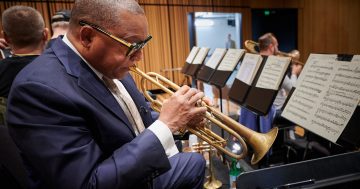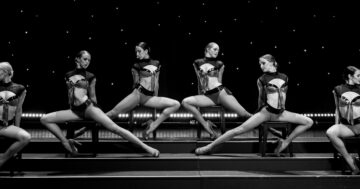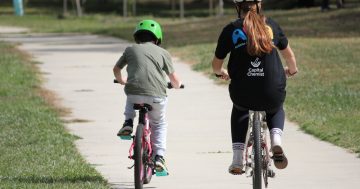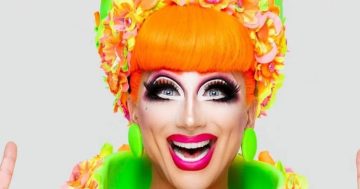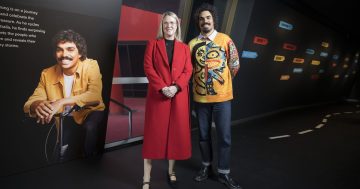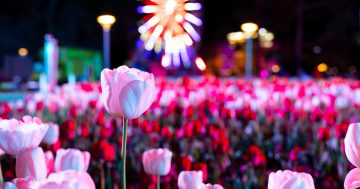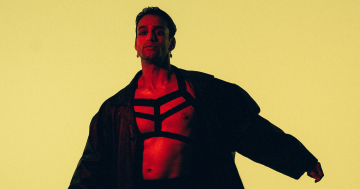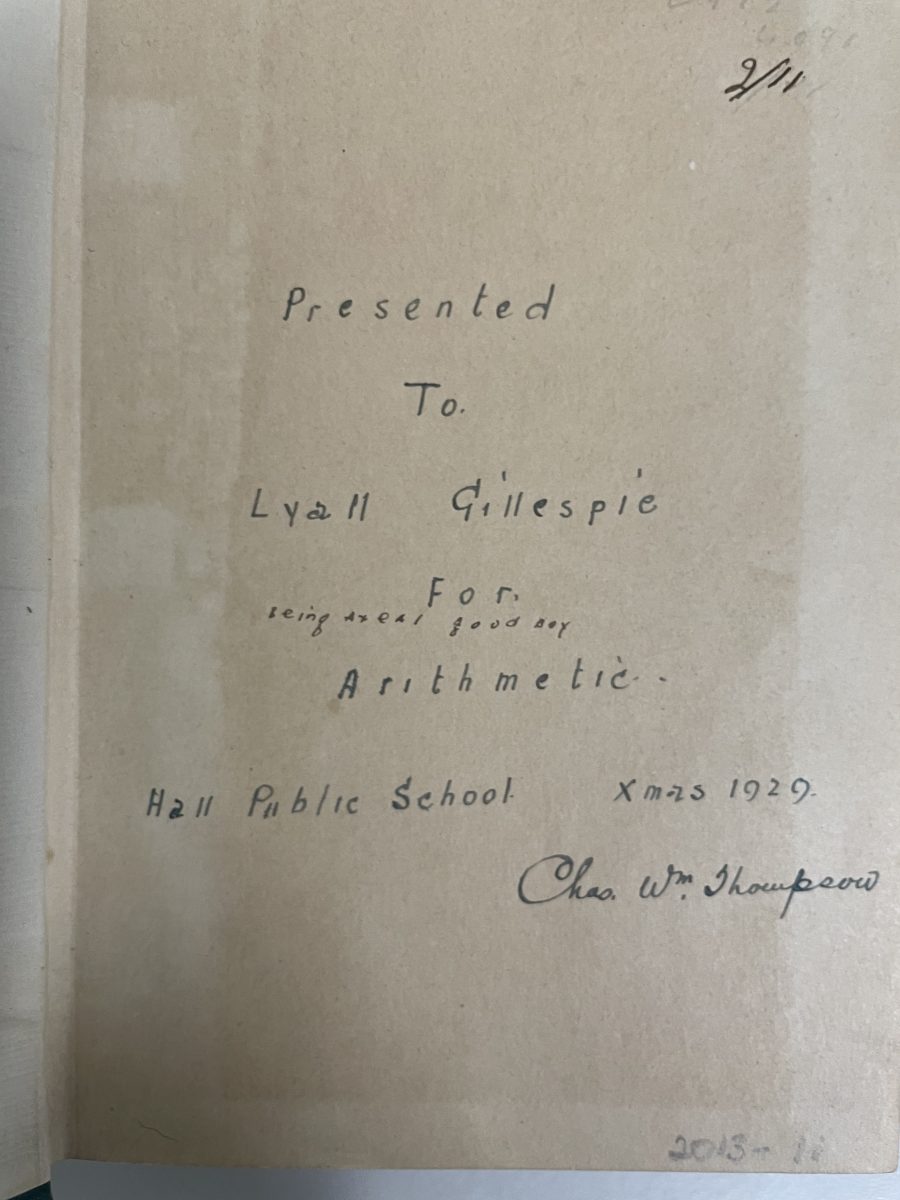
The official inscription inside the book awarded to Lyall Gillespie for his arithmetic skills at Hall School in 1929 – and the young Lyall’s addition. Photo: Hall Heritage Centre.
When Lyall Gillespie was 10 years old in 1929, he won a book prize at the Hall School. The inscription referred to his skills in arithmetic, but that wasn’t good enough for this youngster. He scribbled under the official inscription that he had received the prize for “being a real good boy”.
Today, Gillespie is known as the Canberra historian. The man who was born and bred in what is now the Hall district – and the man who knew no bounds when it came to collecting … just about anything.
He had one of the most remarkable collections of Indigenous material, thanks to the many friends he made as a public servant working in the north of the country down to Canberra. He collected thousands of books, shells, stamps, metal quoits (a very popular game in the Hall village in the 1930s), rock samples and even pieces of crochet.
He was also a prolific writer with many of his books used today as key reference material for early Canberra. He loved to garden and kept every ribbon he won at the local agricultural show, including first prize in 1957 from Young’s of Queanbeyan’s Camellia Exhibition and Flower Show for his three double daffodils.
But it was his passion for history that we remember today. How he used his collections to tell the stories of not only the first Australians who were in Hall more than 10,000 years ago, but how the community developed with European development.
It was also his passion that this remarkable collection remained together, according to curator of a new exhibition at the Hall Heritage Centre, The Journey of Lyall Gillespie 1919-2006, Dr Ken Heffernan.
An archaeologist and Canberra historian himself, Dr Heffernan, with the help of Hall Heritage Centre volunteers, has created a display showcasing the life and work of Gillespie. It portrays a man of passion, intellect and a sense of humour when it came to writing in school book prizes.
The Gillespie collection was given to the Hall museum by the collector’s son Neil, after his father died in 2006. It had been held in family garages “packed to the rafters”.
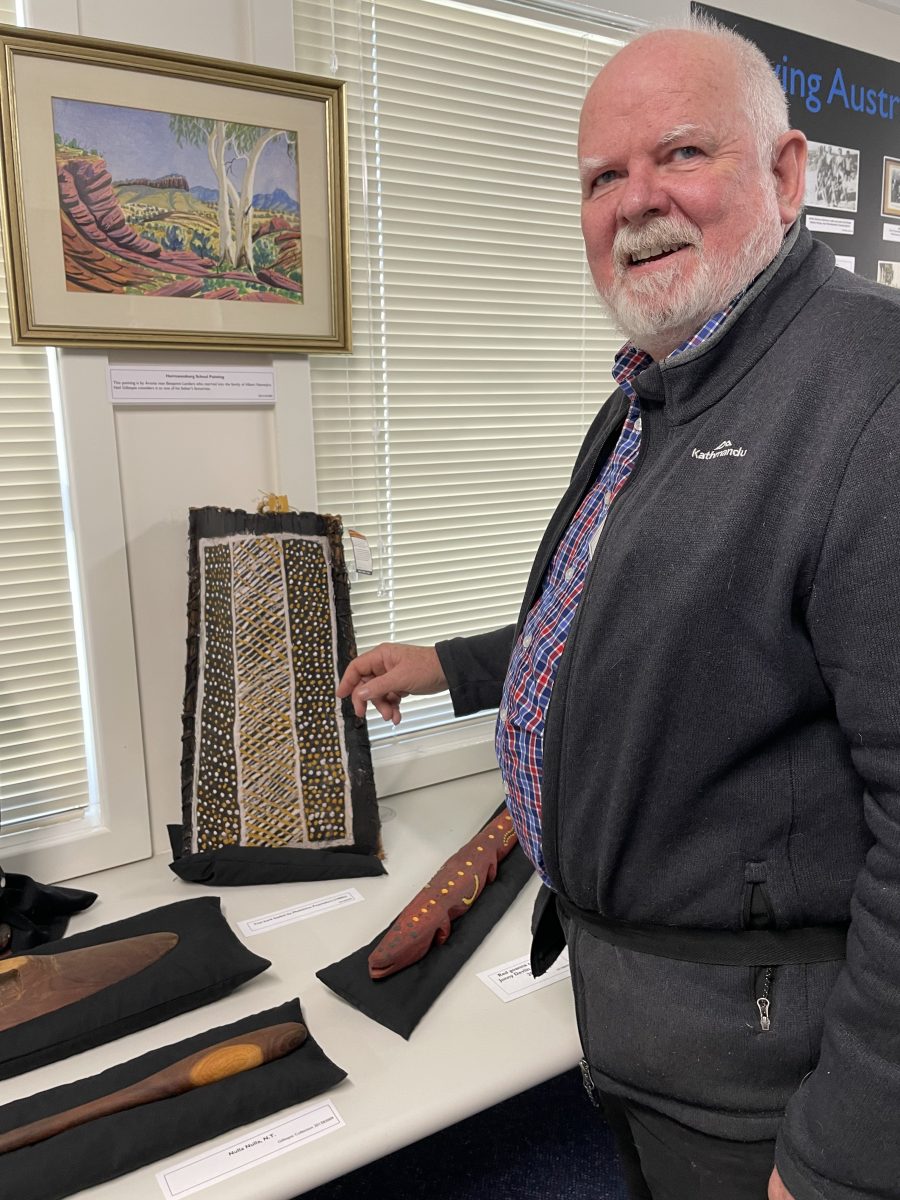
Curator of the Lyall Gillespie exhibition at the Hall Heritage Centre, Ken Heffernan, with some of the First Nations items from the collection. Photo: Sally Hopman.
“He just wanted everything to stay together,” Dr Heffernan said. “That was his wish. Not many museums could take such a huge, diverse collection, but we jumped at it.”
This new exhibition showcases only a taste of the 10,000-item strong collection, despite its vast array of Indigenous material, books, photographs, and objects that played a part in Gillespie’s life and work.
“Yes it is an eclectic collection,” Dr Heffernan said, “but there are threads in it that join everything together.
“One of the best things about this collection, especially when you’re curating something like this, is that he labelled everything. When I started seeing numbers and letters everywhere, I thought thank goodness he was so methodical.”
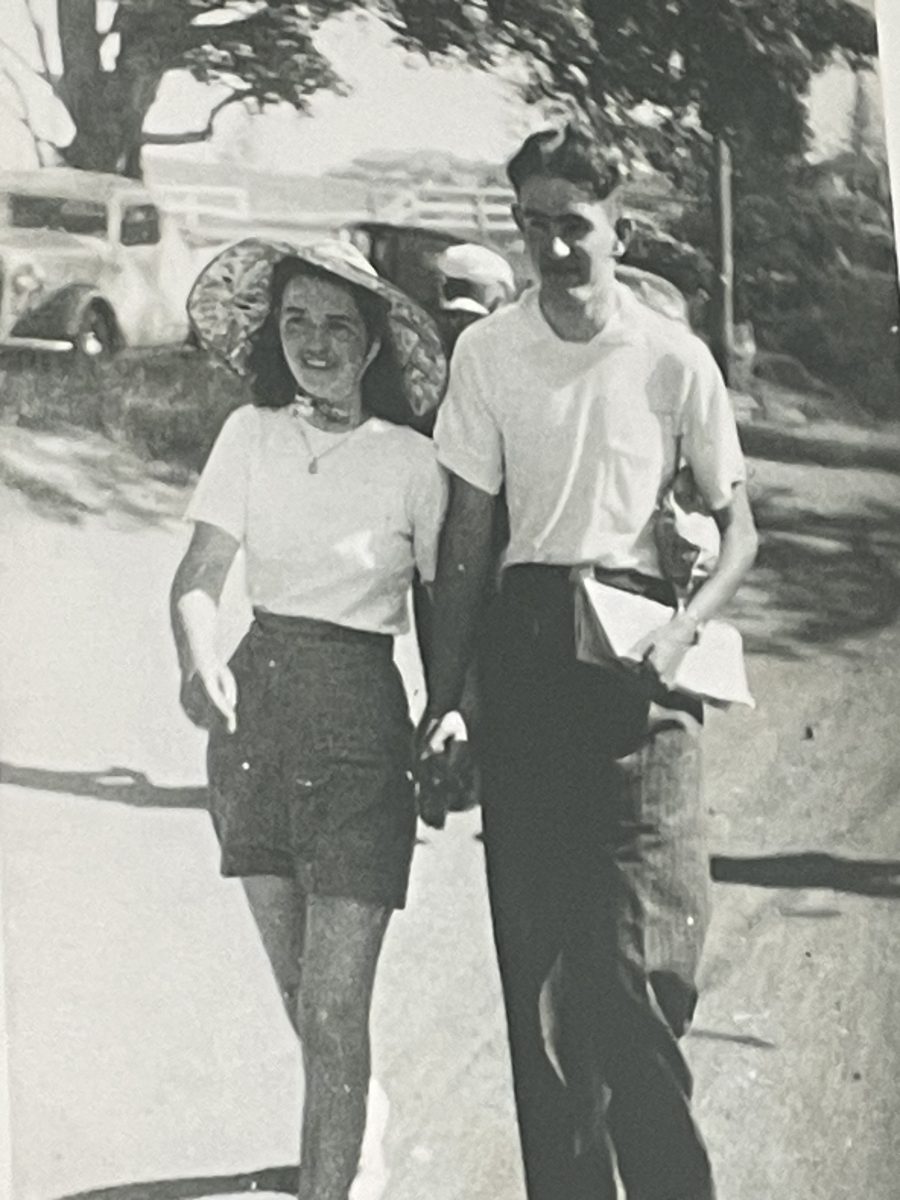
Lyall and Norma Gillespie on their honeymoon in 1941. Photo: Hall Heritage Centre.
The exhibition also looks at his private life, the devotion he had for his wife Norma Joan Bogg whom he married at Goulburn in 1941. It was, according to Dr Heffernan, a marriage of the time. Norma was the silent yet integral partner who kept the family together while her husband was off working – or collecting.
“She was a bit of a hero of the peace,” he said. “She gave him the freedom to do what he loved doing. She did everything.”
So where did the collecting/writing gene come from? “We don’t really know,” Dr Heffernan said, “but apparently he was inspired by his great grandfather who worked for The Goulburn Evening Penny Post – he was known as The Wizard.”
The Journey of Lyall Gillespie 1919-2006 is on display at the Hall Heritage Centre, Palmer Street, Hall, this Sunday, 28 April, from 10 am to 4 pm as part of the 2024 Canberra Heritage Festival. Free entry.












